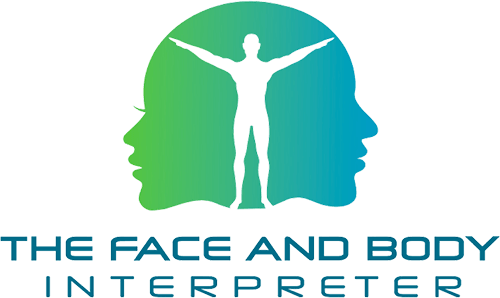
In today’s rapid and demanding lifestyle, stress has inevitably woven itself into the fabric of our daily existence, significantly impacting our mental, emotional, and physical health. The urgent need for effective and sustainable stress management strategies is undeniable, as prolonged stress is increasingly linked to a wide range of health complications. Psychosomatic Therapy offers a comprehensive and structured approach to ease the overwhelming effects of stress. Read on to find out more about the transformative power of Psychosomatic Therapy, a holistic path to not only coping with stress but also enhancing overall well-being.
The Essential Role of Stress Management in Modern Life
In today’s world, where personal and professional responsibilities often intertwine, managing stress effectively has become more important than ever. The increasing demands of our fast-paced society, combined with the challenges we face in both our personal and professional lives, contribute to a significant rise in stress levels. Effective stress management is crucial for maintaining not only a balanced lifestyle but also for ensuring mental, emotional, and physical well-being. It is about proactively enhancing our quality of life and fostering long-term wellness, rather than merely reacting to stressors as they arise. Recognising stress patterns, and how your body and mind respond, is the key to successfully navigating the complexities of modern life and sustaining our health in the face of ongoing pressures.
The Integral Role of Therapy in Stress Management and Reduction
Therapy plays an indispensable role in the effective management and reduction of stress, serving as a fundamental element in the journey towards improved mental well-being. It encompasses a diverse range of modalities, from counselling and psychotherapy to holistic approaches like Psychosomatic Therapy, which takes a holistic view of the mind-body connection. Each style of therapy offers a structured pathway to address and mitigate the impacts of stress. These therapeutic interventions provide a supportive environment, enabling individuals to delve into the root causes of their stress, learn effective coping mechanisms, and develop strategies for resilience. By focusing on the underlying factors contributing to stress, therapy goes beyond mere management. It seeks to transform the individual’s relationship with stress, thereby fostering a journey towards enduring mental and physical well-being. This holistic approach, especially through Psychosomatic Therapy, presents a comprehensive solution for long-term stress alleviation, as you learn how to change your relationship with your emotions and learn a new way of “being”.
Identifying the Most Effective Therapies for Managing Stress
The landscape of stress management is varied, presenting a spectrum of approaches each offering unique strategies for those seeking relief from stress. This section aims to shed light on the diversity of these methods, helping you discern the most fitting therapy for your needs. Traditional therapies like cognitive-behavioural therapy (CBT) and pharmacological treatments focus on altering thought patterns and addressing the physiological components of stress. Meanwhile, mindfulness-based therapies, such as Mindfulness-Based Stress Reduction (MBSR), prioritise awareness of the present moment as a tool for stress mitigation. Furthermore, holistic methods, incorporating practices like yoga and meditation, utilise the mind-body connection to foster comprehensive well-being.
In the following paragraphs, we will introduce Psychosomatic Therapy, an integrative and holistic approach, and explore its efficacy in providing a well-rounded solution for managing stress.
Exploring Psychosomatic Therapy as a Holistic Path to Stress Management
Among the array of stress management therapies, Psychosomatic Therapy stands out as a holistic and integrative solution. Rooted in the understanding that the mind and body are interconnected, Psychosomatic Therapy addresses stress on multiple levels. Unlike some traditional approaches that may focus solely on mental or physical aspects, Psychosomatic Therapy considers the synergistic relationship between the mind, the emotions, and the physical body.
Psychosomatic Therapy goes beyond symptom alleviation; it seeks to uncover and address the root causes of stress, promoting lasting transformation. By integrating psychological, somatic, and behavioural techniques, this therapy offers a comprehensive toolkit for individuals to manage and mitigate the impact of stress in their lives. In the subsequent sections, we delve into the principles and practices that make Psychosomatic Therapy a powerful and effective means of stress management.

Understanding Psychosomatic Therapy
Defining Psychosomatic Therapy as a Holistic Healing Approach
Psychosomatic Therapy is a holistic and dynamic approach to healing that recognises the intricate interplay between the mind and body. Unlike conventional therapies that may isolate mental or physical aspects, Psychosomatic Therapy acknowledges that mental, emotional, and physical states are interconnected. The term “psychosomatic” itself encapsulates this synergy, with “psycho” referring to the mind and “somatic” to the body.
At its core, Psychosomatic Therapy views symptoms not merely as isolated issues but as expressions of underlying, often subconscious, psychological processes. By delving into the root causes of physical or emotional distress, Psychosomatic Therapy seeks to bring about comprehensive and lasting relief.
A trained therapist is taught how to recognise long term emotional patterns which can be seen by observing the physical form, posture, breathing patterns, voice tone and intonation, recognising behaviours which over time also shape the personality and the physical form.
Psychosomatic Therapy Holistic and Integrative Nature
What sets Psychosomatic Therapy apart is its holistic and integrative nature. It goes beyond symptom management to address the whole person. In the pursuit of well-being, Psychosomatic Therapy considers not only the immediate stressors but also the individual’s lifestyle, thought patterns, and emotional landscape.
This holistic approach involves integrating various therapeutic modalities, including cognitive-behavioural techniques, mindfulness practices, and body-centred interventions. By treating the person as a unified system, Psychosomatic Therapy aims to create harmony between the mind and body, fostering a resilient foundation for stress management. In the subsequent sections, we explore the principles and techniques that make Psychosomatic Therapy a powerful tool for understanding and managing stress.
The Somatic Method of Stress Management
Understanding the Somatic Dimension in Psychosomatic Therapy
The somatic aspect, or the focus on the body and its sensations, is a cornerstone of Psychosomatic Therapy, playing a critical role in understanding and managing stress. This approach recognises that our bodies are not just physical entities but are also rich sources of information about our psychological and emotional states. By tuning into bodily sensations, movements, and expressions, we can decipher valuable insights about underlying stressors. Psychosomatic Therapy asserts that unresolved emotional issues often manifest physically as tension, pain, discomfort, or dis-ease. Delving into the somatic dimension, therefore, is not just about acknowledging these physical manifestations but also about exploring them as gateways to deeper emotional understanding. This exploration facilitates a more comprehensive approach to healing, where physical symptoms are seen as interconnected with and reflective of our mental and emotional well-being.
How Body-Centred Approaches Contribute to Stress Reduction
Body-centred approaches play a vital role in stress reduction within the realm of Psychosomatic Therapy. Techniques such as breathwork, progressive muscle relaxation, and biofeedback are central to these approaches, engaging the body actively in the process of tension release and relaxation. These methods go beyond mere alleviation of physical stress symptoms; they also create pathways for emotional release and contribute to overall mental well-being. Furthermore, body-centred interventions are instrumental in enhancing self-awareness. They encourage individuals to become attuned to their body’s sensations and responses, facilitating a deeper understanding of stress triggers. This heightened awareness is crucial in developing effective coping mechanisms and strategies for stress management.
Psychological Treatments for Stress
Integrating Psychological Techniques in Psychosomatic Therapy for Enhanced Stress Management
Psychosomatic Therapy significantly acknowledges the impact of psychological factors on stress and effectively integrates a range of psychological treatments to address these aspects. This approach delves deep into the intricate relationship between the mind and body, going beyond just treating surface-level symptoms. Incorporating psychological techniques in Psychosomatic Therapy is about more than just symptom management; it involves a thorough exploration of thought patterns, emotional responses, and belief systems that contribute to an individual’s stress. Techniques such as cognitive-behavioural therapy are pivotal in this process, as they help identify and transform negative thought patterns. By guiding individuals to reframe their perspectives and cultivate healthier cognitive habits, Psychosomatic Therapy aims to effect lasting changes in how stressors are perceived and managed. This holistic approach not only addresses immediate stress but also empowers individuals with the tools to maintain long-term mental well-being.
Harnessing the Mind-Body Connection in Psychosomatic Therapy for Holistic Stress Relief
A key principle of Psychosomatic Therapy is its emphasis on the mind-body connection, a crucial aspect in achieving comprehensive stress relief. This approach views the mind and body as an inseparable unit, with psychological treatments aiming to harmonise both for overall well-being.
Psychosomatic Therapy employs mindfulness practices to enhance awareness of present moment experiences. By cultivating mindfulness, individuals can observe their thoughts and emotions without judgment, fostering a more balanced and resilient response to stressors. This approach not only addresses the psychological aspects of stress but also promotes a sense of calm and equilibrium in the body.

Behavioural Techniques for Stress Management
The Role of Behavioural Approaches in Psychosomatic Therapy for Stress Management
Behavioural approaches within Psychosomatic Therapy play a crucial role in addressing stress by focusing on modifying specific actions and responses. Unlike purely cognitive or psychological interventions, behavioural techniques involve tangible actions and behavioural modifications. Psychosomatic Therapy recognises the significant influence that behaviour has on both the mind and body, making it an integral component of stress management.
These approaches encompass a range of strategies aimed at identifying and altering behaviours that contribute to stress. By understanding how actions and habits influence overall well-being, individuals can actively participate in their stress management journey. This is an essential part of Psychosomatic Therapy, where empowerment is one of the keys to returning to a person’s body and authentic nature.
Practical Techniques for Modifying Behaviour to Reduce Stress
Psychosomatic Therapy introduces practical and actionable techniques to modify behaviour for effective stress reduction. These techniques are tailored to empower individuals to take charge of their responses to stressors. Some common behavioural interventions include time management strategies, assertiveness training, and setting healthy boundaries.
Furthermore, incorporating relaxation techniques and lifestyle adjustments into daily routines forms a critical aspect of behavioural interventions. Engaging in activities that promote relaxation, such as regular exercise, adequate sleep, and leisure pursuits, contributes significantly to reducing stress levels.
Creating a Personalised Psychosomatic Stress Management Plan
Tailoring Techniques to Individual Needs
Recognising that every individual experiences stress uniquely, Psychosomatic Therapy advocates for a personalised approach. This involves tailoring techniques to individual needs, considering factors such as personal history, lifestyle, and specific stressors.
Integrating Psychosomatic Techniques into Daily Life for Effective Stress Management
The effectiveness of any stress management strategy is greatly enhanced by its practical integration into daily life. Psychosomatic Therapy places a strong emphasis on incorporating its varied practices into everyday routines, ensuring they become a seamless and natural part of one’s lifestyle. Whether it’s through mindfulness exercises, somatic techniques, or behavioural strategies, the primary goal is to establish a sustainable and practical approach to managing stress. This involves developing methods that are not only effective in theory but also feasible and adaptable to individual lifestyles and needs. By making these practices a regular part of daily life, individuals can achieve more enduring and profound stress relief, enhancing their overall well-being.
FAQs: Addressing Common Concerns
Psychosomatic Therapy sets itself apart in the field of stress management with its holistic approach. Distinct from some traditional methods that might concentrate solely on either the mental or physical aspects, Psychosomatic Therapy thoroughly recognises and addresses the interconnection between the mind and body. This therapy goes beyond superficial symptom alleviation, aiming instead for a comprehensive and transformative solution. By delving deep into the root causes of stress, Psychosomatic Therapy seeks to provide a more complete and enduring form of relief, targeting both the immediate symptoms and their underlying origins.
The somatic approach in Psychosomatic Therapy involves exploring the body’s sensations, movements, and expressions as indicators of underlying stressors. By paying attention to the somatic dimension, individuals can gain insights into the emotional aspects of stress, fostering a more comprehensive approach to stress relief. The body itself holds emotional patterns, which can be interpreted by a trained therapist.
Psychological treatments play a significant role in managing stress and are an integral part of Psychosomatic Therapy. However, Psychosomatic Therapy extends its scope beyond just these interventions. By incorporating somatic and behavioural techniques, it offers a more comprehensive approach to stress management. This holistic strategy addresses stress on multiple levels, enhancing the effectiveness of the treatment beyond what psychological methods can achieve alone. By integrating these various approaches, Psychosomatic Therapy provides a well-rounded solution to stress management, addressing not only the psychological aspects but also the physical and behavioural factors, making it a potentially more effective option compared to relying solely on psychological treatments.
Within Psychosomatic Therapy, behavioural techniques such as time management strategies, assertiveness training, and setting healthy boundaries have consistently demonstrated effectiveness in stress reduction. These practical interventions help modify specific actions and responses, contributing significantly to managing stress.
Challenges and Considerations
Implementing Psychosomatic Therapy may pose challenges, especially for those unfamiliar with holistic approaches. Some individuals might find it initially challenging to connect with the somatic aspects or may face resistance in exploring deep-seated emotional issues. This is an important part of the process to notice, without judgement, as new skills and coping mechanisms are created through these insights. Insights = Inner Sight
Overcoming challenges in Psychosomatic Therapy involves patience and openness to explore patterns which may not be serving you. These may show up as relationship issues, or health concerns. Manageable techniques will be offered to you, as you learn to apply these strategies into your life. Establishing a trusting therapeutic relationship, providing clear explanations, and offering support can help individuals overcome initial resistance. Education about the holistic nature of Psychosomatic Therapy and its potential benefits is crucial for navigating and overcoming challenges.
The Future of Stress Management: Integrating Psychosomatic Therapy
As we look towards the future, stress management approaches continue to evolve. Emerging trends emphasise the importance of holistic and integrative methods that consider the mind-body connection. Psychosomatic Therapy, with its comprehensive approach, aligns with these trends, providing a glimpse into the future of stress relief.
Psychosomatic Therapy is poised to play a significant role in the future of stress management. Its holistic and integrative approach, which addresses both mental, emotional, and physical aspects of well-being, resonates with the growing recognition of the need for comprehensive stress management strategies. As research continues to support the effectiveness of psychosomatic approaches, it’s expected to become a cornerstone in the field of stress management.
Conclusion
Summary of Psychosomatic Therapy’s Effectiveness in Stress Management
Psychosomatic Therapy has established itself as a potent and effective means of managing stress. This approach is distinctive in its comprehensive coverage, addressing both the psychological and somatic aspects of stress. Its strength lies in not just managing the symptoms but also in targeting and resolving the root causes of stress. This holistic method ensures that Psychosomatic Therapy provides more than just temporary relief; it enables lasting transformation and well-being. By delving into both the mental, emotional, and physical facets of stress, Psychosomatic Therapy offers a unique solution that fosters deep and enduring changes in stress management practices.
Embracing Holistic Stress Management with Psychosomatic Therapy
As we navigate the complexities of modern life, the need for effective stress management strategies becomes increasingly evident. We encourage you to delve into the world of holistic stress management, with Psychosomatic Therapy playing a pivotal role. This therapy offers a comprehensive framework that goes beyond conventional stress relief methods. By adopting a holistic approach, individuals are empowered to cultivate resilience, transform their relationship with stress, and embark on a journey towards lasting health and vitality. Embracing Psychosomatic Therapy as part of your stress management strategy means choosing a path that not only addresses immediate stressors but also fosters long-term well-being, allowing for a deeper and more meaningful engagement with life.


